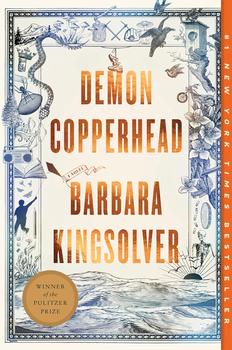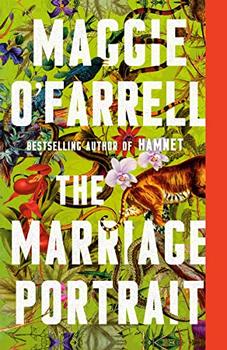Summary | Excerpt | Reviews | Beyond the book | Read-Alikes | Genres & Themes | Author Bio

A Novel
by Jo HarkinAfter 500 years, Tudor history has every right to be stale. Its cut-throat court politics have been hashed and rehashed by novelists, poets, and playwrights since Henry VIII was still picking wives. So it's always worth sitting up and taking note when a writer arrives who can inject the genre with a little life—and Jo Harkin, author of Tell Me an Ending, is definitely one such writer. Her brilliant and inventive new novel, The Pretender, tells the extraordinary story of Lambert Simnel, a footnote of history who could have been king.
The year is 1483. Richard III has deposed Edward V, his young nephew, and locked him and his brother in the Tower of London. A few months later, rumors have started to spread that the new king has had the young princes killed. As animosity against Richard grows, some unknown Welshman called Henry Tudor starts gathering men to usurp the crown for himself. Their armies meet at Bosworth: at the battle's end, Richard's lifeless body is dragged naked from the field.
Not that anyone in young John Collan's village much cares. There are cows to be milked, there's wheat to be reaped, and there's beer to be drunk. For the ten-year-old John, far more pressing is the issue of Gaspard, the menacing goat who has been knocking him into the stream and (John fears) making "a twat" of him. His is not the realm of kings and queens—until, that is, a mysterious stranger arrives at his father's door to inform John that he is in fact Edward Plantagenet, rightful heir to the English throne.
From there, John's life turns upside down—and The Pretender hits its stride. Inconveniently, Henry Tudor is sitting on the throne, so John's backers (supporters of the dead King Richard) will need him to take the kingdom by force. In the meantime, he's concealed under the name Lambert Simnel and whisked from his Oxfordshire village to luxurious palaces in Flanders and the Pale of Ireland (see Beyond the Book), where this son of a farmer is taught the manners expected of an English monarch.
The situation is patently ridiculous and The Pretender knows it: this is above all a brilliantly funny book. Harkin always plays on the border of outright farce, but never stumbles into the wrong territory. Indeed, her novel has more than a passing debt to Monty Python's The Life of Brian, with John spending a great deal of his time trying to convince his supporters that it really would be best for everyone if he just gave up this whole "being king" business. So much of the novel's humor comes too from its dialogue, which gloriously celebrates a particularly medieval kind of bawdiness. Anyone familiar with The Canterbury Tales will know that there was more to the Middle Ages than tonsured monks leafing through prayerbooks, and The Pretender rejoices in degrees of smut that make modern profanity seem pitifully poor in comparison.
All of which is not to say that Harkin writes without depth. She knows that comedy ripples on the surface of tragedy, and now and again she dives deep into John's pain. At times, the loneliness of his situation—snatched from his family, given a name he doesn't want, thrust into a violent world—is made palpable and real. To survive, Lambert must have John Collan "bricked up like an anchorite" inside himself; only later, when he tries to tear down that wall, does he find the village boy has withered to a skeleton.
That depth is also felt in the richness of the society Harkin writes onto the page. She is expertly versed in the stories that made up the medieval worldview—and has much to say about the misogyny on which that worldview appears to be based. Women are expected to keep quiet and have children (preferably sons), but one of The Pretender's great strengths is its female characters. Whether born low, like Jeanette, the hard-bitten milkmaid from John's village, or high, like Margaret of York, mastermind behind the plot to push Henry from the throne, these women by the very nature of their situation must be more interesting than the men. In a world that wants them stifled, only their creative thinking can pry open the little breathing space they need to thrive.
For those who know that Henry VIII came after Henry VII, it will come as no surprise that the plot to put Lambert Simnel on the throne doesn't go exactly to plan. But this story—embellished, yet with the outline of truth—is worth following to the end. Excellently written by an author brimming with confidence, The Pretender stands with the confidence of a king in the crowded field of Tudor fiction.
![]() This review
first ran in the April 23, 2025
issue of BookBrowse Recommends.
This review
first ran in the April 23, 2025
issue of BookBrowse Recommends.

If you liked The Pretender, try these:

by Barbara Kingsolver
Published 2024
From the New York Times bestselling author of Unsheltered and Flight Behavior, a brilliant novel which enthralls, compels, and captures the heart as it evokes a young hero's unforgettable journey to maturity.

by Maggie O'Farrell
Published 2023
The author of Hamnet - New York Times bestseller and National Book Award winner - brings the world of Renaissance Italy to jewel-bright life in this unforgettable portrait of the captivating young duchess Lucrezia de' Medici as she makes her way in a troubled court.
Your guide toexceptional books
BookBrowse seeks out and recommends the best in contemporary fiction and nonfiction—books that not only engage and entertain but also deepen our understanding of ourselves and the world around us.